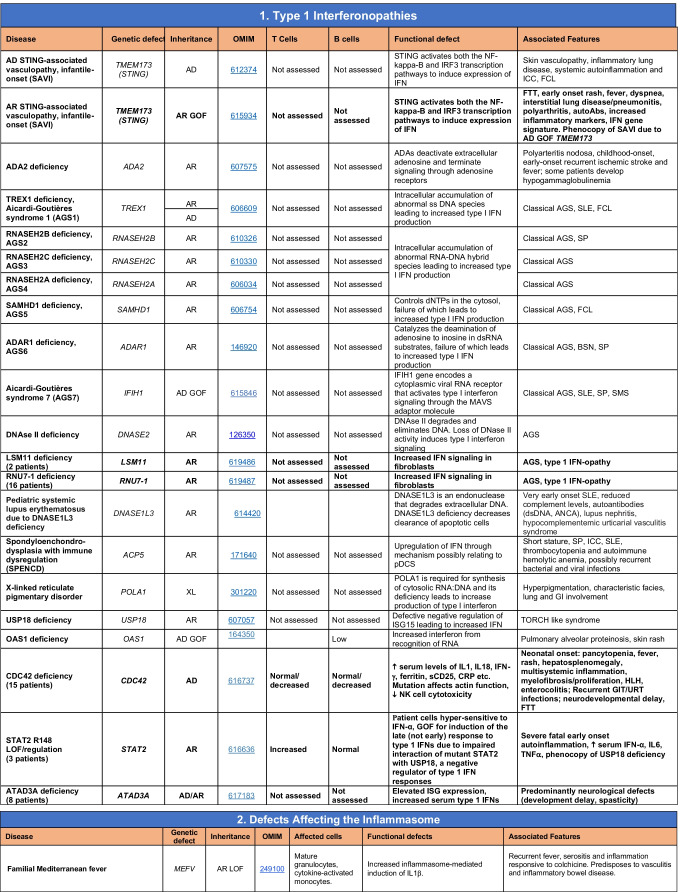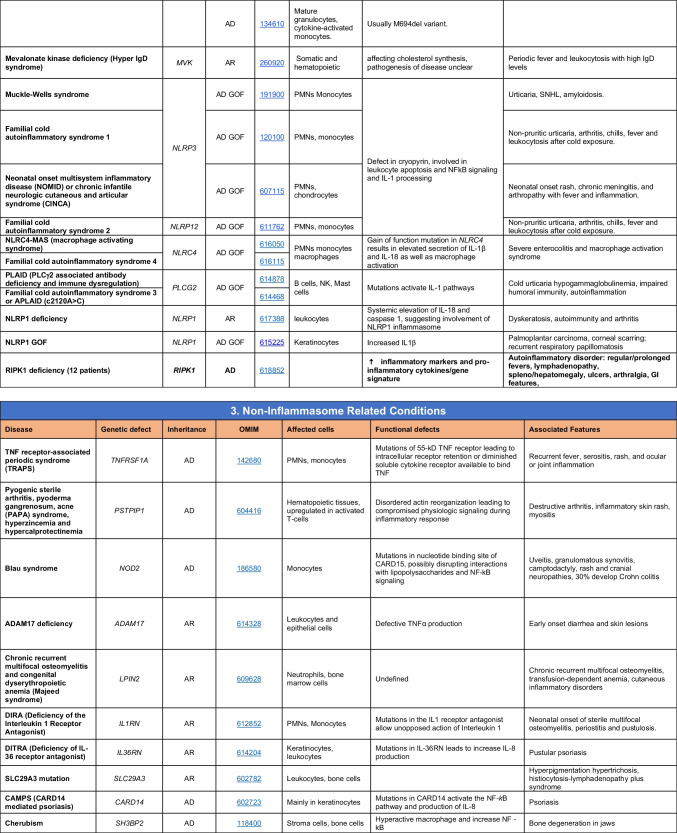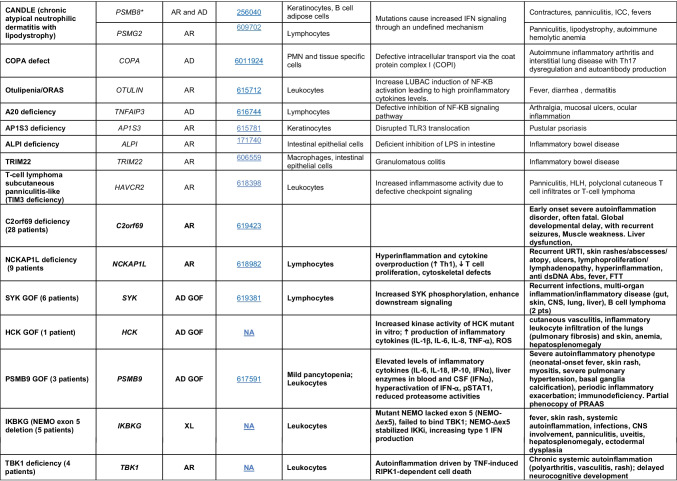Table 7.
Autoinflammatory disorders
Total number of disorders in Table 7: 56. New inborn errors of immunity: 14 (AR GOF TMEM173 [70], LSM11, RNU7-1 [71], CDC42 [72–78], STAT2 [79, 80], ATAD3A [81], C2orf69 [83, 84], RIPK1 [85, 86], NCKAP1L [87–89], SYK [90], HCK1 [91], PSMB9 [95, 96], IKBKG NEMO-Δex5, AR TBK1 [82])
IFN interferon, HSM hepatosplenomegaly, CSF cerebrospinal fluid, SLE systemic lupus erythematosus, TORCH toxoplasmosis, other, rubella, cytomegalovirus, and herpes infections, SNHL sensorineural hearing loss, AGS Aicardi-Goutières syndrome, BSN bilateral striatal necrosis, FCL familial chilblain lupus, ICC intracranial calcification, IFN interferon type I, pDCs plasmacytoid dendritic cells, SP spastic paraparesis, SMS Singleton-Merten syndrome, ss single-stranded DNA
*Variants in PSMB4, PSMB9, PSMA3, and POMP have been proposed to cause a similar CANDLE phenotype in compound heterozygous monogenic (PSMB4), digenic (PSMA3/PSMB8, PSMB9/PSMB4, PSMB4/PSMB8) and AD monogenic (POMP) models [115]



